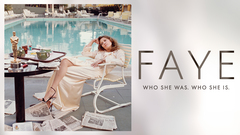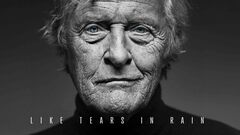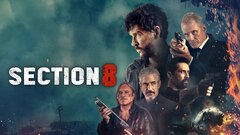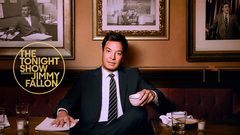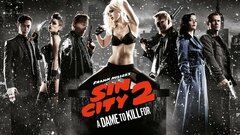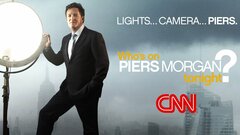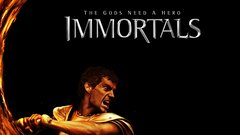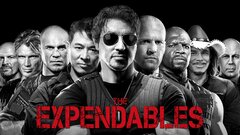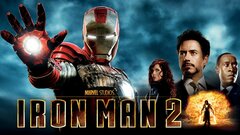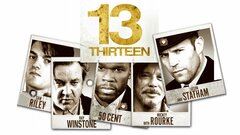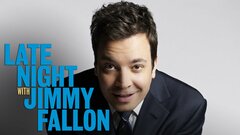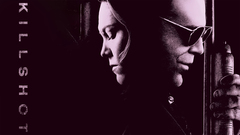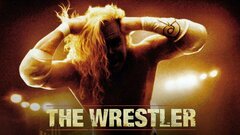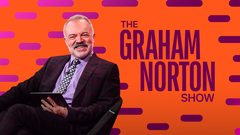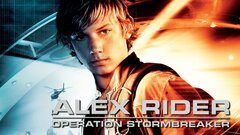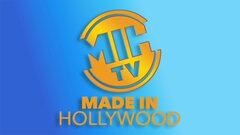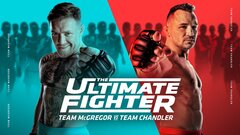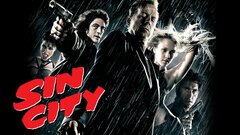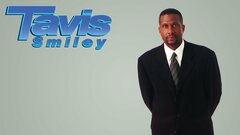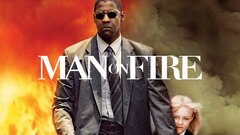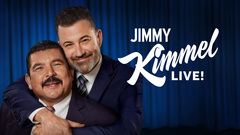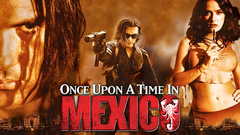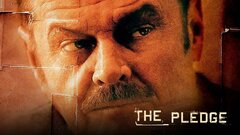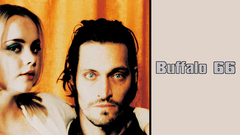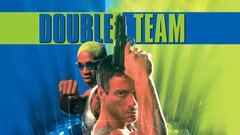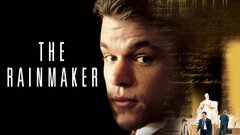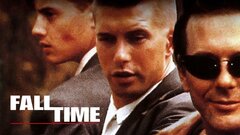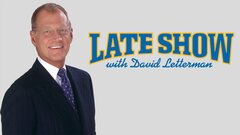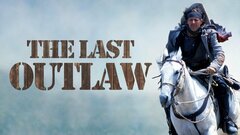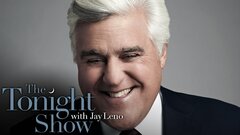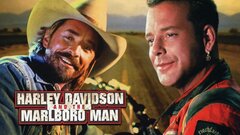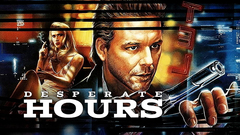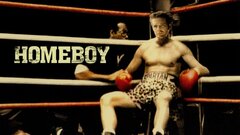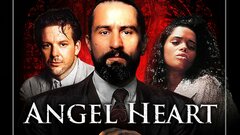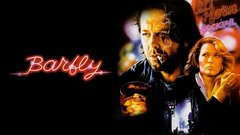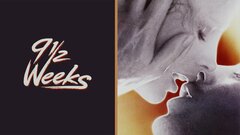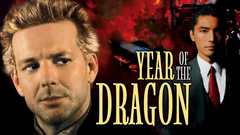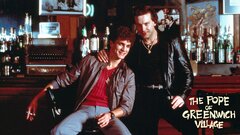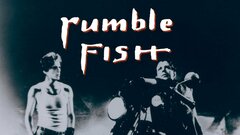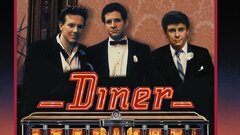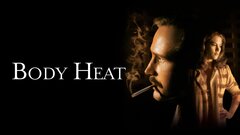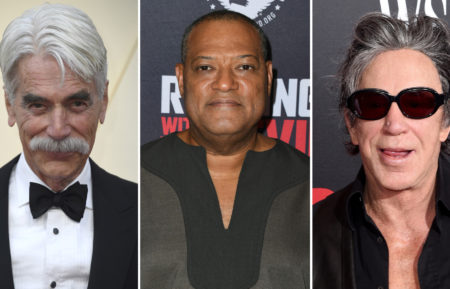Emerging onto the film landscape loaded with talent and promise, actor Mickey Rourke first made his presence known with a scene-stealing turn as an arsonist in the erotic noir "Body Heat" (1981) before spending the next few years playing roles that would be looked back upon as the genesis of his greatness. His performances in "Diner" (1982) and "Rumble Fish" (1983) were clear signs that the world was witnessing the emergence of another James Dean or Robert De Niro.
After several quiet years, Rourke reemerged in several small but prominent turns, culminating in a full-fledged career comeback with his acclaimed performances in "Sin City" (2005) and "The Wrestler" (2008). Thanks to his resurgence, Rourke was able to secure roles in blockbusters like "Iron Man 2" (2010) and "The Expendables" (2010), which helped rekindle his long-burning promise.
Born on Sept. 16, 1956 in Schenectady, NY, Rourke was raised by his father, Philip, a country club caretaker and amateur bodybuilder, and his mother, Ann. In part because his father was abusive to him, his parents divorced when Rourke was six, leaving him and his brother, Joey, with their mother. A few years later, Ann moved the broken family to Miami Beach, FL, where Rourke came of age in Liberty City, a rough-and-tumble neighborhood where he quickly learned how to fight for survival. By the time he was 12, Rourke began learning how to box at the famed 5th Street Gym, where Muhammad Ali and Sugar Ray Leonard trained. Though he also excelled at baseball and football, boxing was Rourke's first love, which led to an amateur career and participation in the Florida Golden Gloves tournament, though eventually he was forced to leave the sport after suffering two concussions.
In between hanging out with friends halfway on their way to prison and graduating Miami Beach Senior High School, Rourke discovered acting by way of a small production of Jean Genet's "Deathwatch." Rourke later admitted to having no idea what he was doing, and once the production lowered its curtain for good, the young actor vowed to learn all he could about his new-found passion.
Once he caught the acting bug, Rourke moved to New York and studied with Sandra Seacat, then managed to find his way into the famed Actors Studio, where he learned method acting like his hero, Robert De Niro, with whom he would soon be compared. While living in a rundown hotel in Greenwich Village and taking a series of odd jobs - including pretzel vendor and Good Humor man - to make some money, Rourke was seen in several off-off-Broadway productions, including making his debut in a revival of Arthur Miller's "A View from the Bridge."
Eventually, he made his way west to Los Angeles, where Rourke landed his first film roles in spectacular failures like "1941" (1979) and "Heaven's Gate" (1980), as well as made appearances in three television movies, playing a murderer in "City in Fear" (ABC, 1980), a paraplegic who begs his brother to kill him in "Act of Love" (NBC, 1980) and a husband accused of assaulting his wife (Linda Hamilton) in "Rape and Marriage: The Rideout Case" (CBS, 1980).
Rourke was working as a bouncer at a transvestite club when he auditioned for his breakout role, playing Teddy in the neo noir "Body Heat" (1981). Though the film centered on the sizzling relationship between William Hurt and Kathleen Turner, Rourke stole the show as an arsonist who shows an attorney (Hurt) how to get away with murder. He then attracted considerable attention as the gambling, debt-ridden hairdresser and Lothario Boogie in "Diner" (1982), Barry Levinson's cult favorite comedy about a group of young men in the 1950s - including up-and-comers Steve Guttenberg, Paul Reiser, Daniel Stern and Kevin Bacon - stumbling into adulthood while passing their time away at a local diner. Though "Diner" was credited with launching the young actors' careers, Rourke was singled out by several critics as being the one to watch.
Rourke continued his impressive streak playing the nameless Motorcycle Boy in Francis Ford Coppola's screen version of S.E. Hinton's "Rumble Fish" (1983). His performance was reminiscent of James Dean; a tough, eccentric, but addled rebel whose fragility was clearly visible. Once again, Rourke's supporting performance stole the show from an otherwise excellent cast, which included Matt Dillon, Diane Lane and Nicolas Cage.
With his career on a fast upward trajectory, Rourke starred in Stuart Rosenberg's low-budget character-driven crime drama, "The Pope of Greenwich Village" (1984), playing a low-level Italian crook who runs afoul of a local mob boss (Burt Young) and the police after he and his dim-witted cousin (Eric Roberts) botch a safe cracking job. Though not as revered as his prior efforts, Rourke was nonetheless effective in his first leading role.
Rourke solidified his rough-edged, anti-hero persona in Michael Cimino's "Year of the Dragon" (1985), morphing from a sympathetic existentialist to violent nihilist in playing a rogue cop taking it upon himself to break the back of Chinatown drug cartels. He made considerable headlines for starring in Adrian Lyne's erotic, but campy "9 ½ Weeks" (1986), playing a New York stockbroker involved in a sadomasochistic affair with a downtown art gallery manager (Kim Basinger).
In fact, his intense portrayal of a sexually obsessed and domineering man who enjoyed food as aphrodisiac managed to put the actor on the female radar for, perhaps, the first time, making him a sex symbol for a short while. In "Barfly" (1987), Rourke delivered his most engaging performance since "Diner," playing a drunken, brawling, sometime writer whose long unwashed hair and unglamorous stubble made the actor almost unrecognizable at the outset - the exact opposite of the handsome playboy of his previous project. Relaxing into the Charles Bukowski-inspired character, Rourke kept the film buoyantly alive throughout, elevating what could have been a depressing tale of losers into a low-life fairy tale leavened by considerable, unforced comedy.
Rourke delivered another intriguing and compelling performance in "Angel Heart" (1987), a murky, erotic and controversial thriller best described as occult film noir. Rourke played a washed-up, unkempt private detective who gets hired by a mysterious client (Robert De Niro) to find a missing singer owing a debt, only to find himself embroiled in a strange and evil case that leads to a direct conflict with the devil himself. Meanwhile, behind the scenes, Rourke - always a difficult person to work with - became increasingly demanding and confrontational. His career, in fact, went into rapid decline, as his self-destructive tendencies came to the fore. Though some directors and actors sang his praises, others like "Angel Heart" director Alan Parker said that working with Rourke was "a nightmare," and that he was "very dangerous on the set."
Not to be held down, Rourke took a stab at writing with "Homeboy" (1988), which portrayed him as the aptly-named Johnny Walker, an aging, alcoholic boxer who gets a second chance inside the ring with help from the mob. The dull, clichéd script and lack of overall appeal doomed the internationally financed production from the start.
With his next film, Rourke courted controversy by saying he donated part of his salary from "Francesco" (1989) - in which he played St. Francis of Assisi - to the Irish Republican Army. Despite the headlines, "Francesco" proved to be another bomb in what was fast becoming a disintegrating career. Meanwhile, Rourke did himself no favors when he began to acquire a reputation for being a loudmouth punk after bragging to reporters about his friendships with alleged mobsters within New York's Gotti organization. In 1994, he was arrested on domestic violence charges against his wife and "Wild Orchid" (1989) co-star Carrie Otis; the culmination of a rocky marriage which would run hot and cold for six years. But most of the damage to his reputation was caused by him listlessly walking through a series of roles, as was the case with the dreadful "Harley Davidson and the Marlboro Man" (1991).
With his acting career on the ropes, Rourke made a high-profile return to the boxing ring, saying later that "I had to go back to boxing because I was self-destructing. I had no respect for myself being an actor. So I went back to a profession which really humbled me." Despite winning all of his fights - albeit against lesser opponents - Rourke's numerous facial injuries alarmed a neurologist enough to force him into retirement. It was around this time that Rourke's heretofore classically handsome facial features began to undeniably change; rumors ran the gamut from collapsed cheek implants to one too many rounds to the face. Whatever it was, there was no denying his shifting visage and the impact it would have on the actor's ability to land leading man roles in the future.
Realizing his career would be over unless he could make the industry take him seriously again, Rourke shot for a comeback, but continued to pop up in a terrain of moribund crime dramas like "Bullet" (1995) and "Fall Time" (1995) as well as action drivel like "Double Team" (1997) alongside Jean-Claude Van Damme and Dennis Rodman. He did, however, see a rise in his bankability that same year with his most effective screen appearance in ages, again oozing slime as the ethically-challenged lawyer Bruiser Stone of "John Grisham's 'The Rainmaker'" (1997), directed by Francis Ford Coppola.
His cameo as a bookie in Vincent Gallo's directorial debut, "Buffalo 66" (1998), helped him along, though he could have done without his reprisal of the sexually obsessed stockbroker in "Another 9 ½ Weeks" (1997). Still struggling to find meatier leading roles, Rourke suddenly found his plate full with marginal projects like the direct-to-video releases "Thursday" (1998) and "Point Blank" (1998), though an appearance in Terrence Malick's lyrical war drama, "The Thin Red Line" (1998), was unfortunately left on the cutting room floor.
Rourke made had an unforgettable cameo in the edgy character-driven feature, "Animal House" (2000), playing a transvestite drag performer. The following year, he delivered a short, but emotionally poignant scene as a father mourning the loss of his daughter in Sean Penn's psychological drama, "The Pledge" (2001). In 2003, Rourke played a drug dealer in the dark comedy "Spun," a feature directed by Jonas Akerlund, then cameoed in director Bob Dylan's awful "Masked and Anonymous" (2003). Director Robert Rodriguez next cast him in a career-reviving role as Billy, an otherwise sinister enforcer whose menace is somewhat undermined because he carries around a small dog, in "Once Upon a Time in Mexico" (2003). But the true career resuscitation occurred two years later. Rourke reunited with Rodriguez when the director tapped him to play the iconic Marv, one of the antiheroes from writer-artist Frank Miller's crime noir comic book series "Sin City" (2005), which Rodriguez and Miller turned into a visually arresting and financially successful film.
With his face covered in prosthetics to more perfectly provide an approximation of Marv's distinctively exaggerated rough-hewn features for "The Hard Goodbye" storyline, Rourke delivered a tour de force performance, alternately chilling and amusing that reminded any doubters that he was still a force to be reckoned with.
Now enjoying a decidedly happy upturn in his career, Rourke initially refused the role of bounty hunter Ed Moesby in "Domino" (2005), director Tony Scott's hyperkinetic pseudo-biopic of model-turned-tracker Domino Harvey (Keira Knightley), finding the role too conventional and uninteresting. But when Scott allowed Rourke to help shape the character into something more quirky and original, he attacked the role with his characteristic gusto.
It had been a long, slow climb back from the bottom, but Rourke had returned with a spate of fresh, exciting performances that caused Hollywood to take notice. Most importantly, Rourke appeared determined not to blow his second chance at a career in front of the cameras. After appearing in the low-budget "Alex Rider: Operation Stormbreaker" (2006), Rourke received the most substantial critical kudos of his career for his leading performance in Darren Aronofsky's "The Wrestler" (2008), in which he played Randy "The Ram" Robinson, a washed-up pro wrestler forced years ago into retirement after suffering a heart attack in the ring. Now a deli worker living with an aging stripper (Marisa Tomei), Randy suddenly finds himself facing a life crisis when a rematch with his old nemesis, The Ayatollah (Ernest "The Cat" Miller), proves irresistible.
Prior to the film's December 2008 release, the media hailed Rourke's performance, with some calling for an early Academy Award nod - which he received soon after winning a Golden Globe for Best Leading Actor - and true to form, the gossip began, with tabloids whispering of an alleged romance with his much younger "Wrestler" co-star Evan Rachel Wood. Either way, Rourke was back for a second shot at fame and fortune, signing on to several high profile projects, including "Iron Man 2" (2010), playing main villain Ivan Vanko/Whiplash to Robert Downey, Jr.'s Tony Stark/Iron Man.




